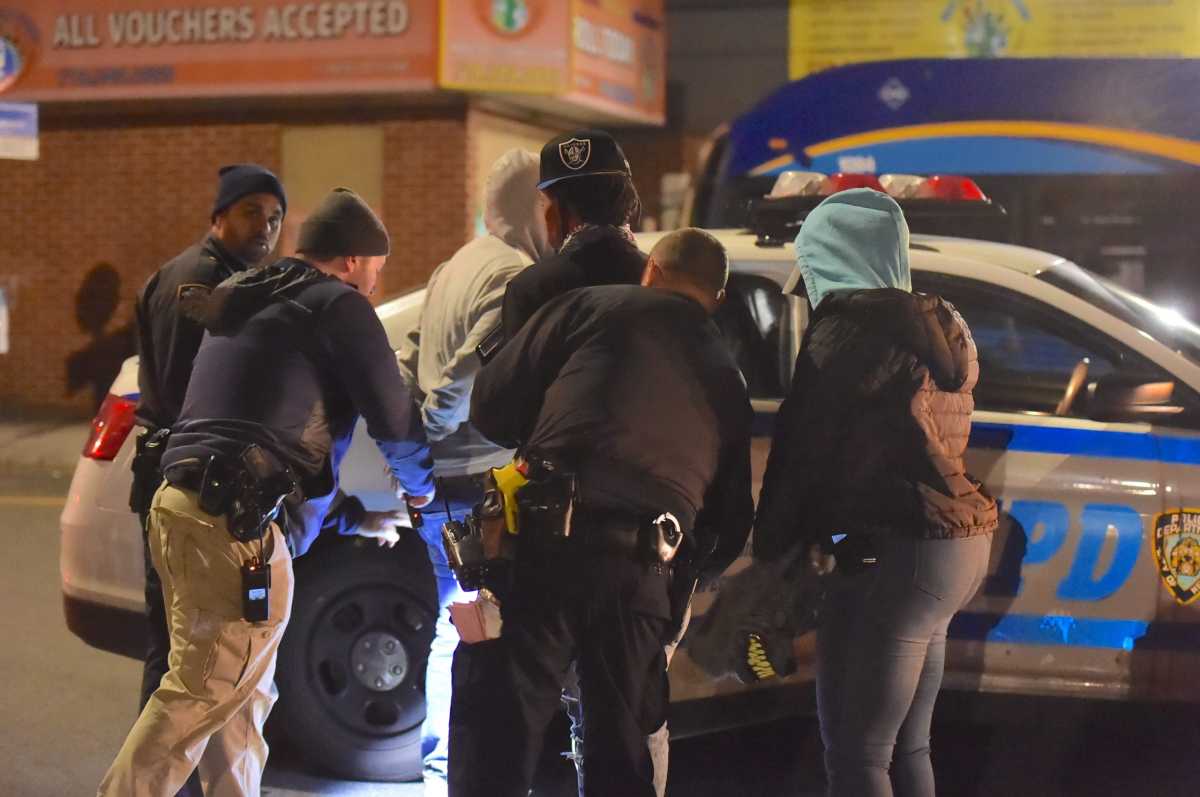Probation officers in New York City are changing their way of doing business as the coronavirus outbreak ravages the city and impacts the increased number of people on probation as a result of reforms in the criminal justice system.
Officials say those on probation are being “negatively impacted” by the contagion outbreak and officers are offering additional services including food programs, help with employment and video conferencing services. The department also says they continue to do home visitation with social distancing precautions.
The Department of Probation (DOP) reported an increase in the number of people on probation since the beginning of the year as a result of criminal justice reform. Currently there are proposed changes to the reforms for hate crimes and providing judges with more discretion, but officials say they don’t believe this will make a large difference should those changes pass. Exact numbers were not immediately available.
Last year, DOP provided intake, investigation, and supervision services for nearly 50,000 cases and directly supervised 23,420 adults and 1,843 adolescents. However, as compared to the City’s overall population of 8.5 million, the department claims it is “also one of the least justice-involved cities in the country – allowing us to concentrate our evidence-based practices and resources on those who need it most.”
The Probation Officers Union has expressed concern that there is enough personal protective equipment so that they can do home visitations with safety. Dalvanie K. Powell, president of the United Probation Officers Association, said she is concerned about her 800 officers who have had to absorb the large increase in the number of cases they are assigned. Six officers are now self-quarantined as a result of the contagion.
Powell said officers were using video conferencing, Facetime, Zoom and other conference methods to communicate with their clients.
“We still must go in the field and make visits, but we have to do it smartly to keep our community safe, but we are concerned that officers don’t get the virus and bring it back home to their families,” Powell said. “We are working closely with the department to get PPE’s for our members to keep them healthy and safe.”
Probation has become the preferred method of dealing with criminal behavior – an alternative to incarceration. Most cases are non-violent offenders who don’t necessarily represent a threat to the community – but require supervision to help those people to get jobs or education and to not commit other crimes while on probation.
“We still have to go out there – we can have sex offenders who we need to visit – it depends on the severity and risk factors, and each person is on a case by case basis, but we still have to go out there,” Powell said. “We want the same protection as any other law enforcement agency and PPE is needed because we want to be considered essential first responders.”
Probation officers work with numerous agencies including the Department of Corrections and conduct investigations in conjunction with a host of law enforcement agencies including U.S. Marshals, Drug Enforcement, the NYPD and even ICE. Probation officers help offenders find jobs, do risk assessments, and work towards clients “becoming productive people in our city.”
“Dept of Probation is often a missing piece, often forgotten and misunderstood, but we are performing an essential service and we are first responders,” said Powell, adding that it is even more important now as fewer people are being sent to jail and need help so they don’t return to a life of crime.
Officials from the Department of probation issued a statement saying they are using more electronic reporting, but others on probation require “regular in-person supervision while employing social distancing and other recommended precautions that will keep the individuals under supervision, probation officers and the public safe.”
While their offices are closed to the public at this time, the field enforcement “remains operational.”
As part of the New York City Department of Probation response to the COVID-19 (coronavirus) crisis, the DOP has the Neighborhood Opportunity Network (NeON) Nutrition Kitchen in partnership with the Food Bank of NYC, and the NYC Young Men’s Initiative has expanded hours and added a new location where those on probation and New Yorkers in need are provided one week of free pre-packaged groceries. Last year they served over 100,000 families city-wide, and we are now ready to triple our capacity.
“Our teams began delivering food packages to those on probation and our neighbors, including the disabled and seniors city-wide. As frontline workers, it is extremely gratifying that during this crisis, we can assist not only those on probation but our neighbors,” an official statement said.
Officials say January’s bail reform had only a minimal impact on DOP,” we have experienced a very significant impact as a result of “Raise the Age.” Since October 2018, the New York City Department of Probation has seen an over 100 percent increase in the number of intakes and served over 3,000 additional youth, providing justice-involved young people and their families with developmentally appropriate services while keeping them safely in their communities.
The department said the COVID-19 outbreak might have a negative impact on their programs.
“Probation Officers continue to work with individuals on probation to make sure that they are employable and can retain existing employment; with that said, current conditions will likely disproportionately negatively impact people on probation.”




































